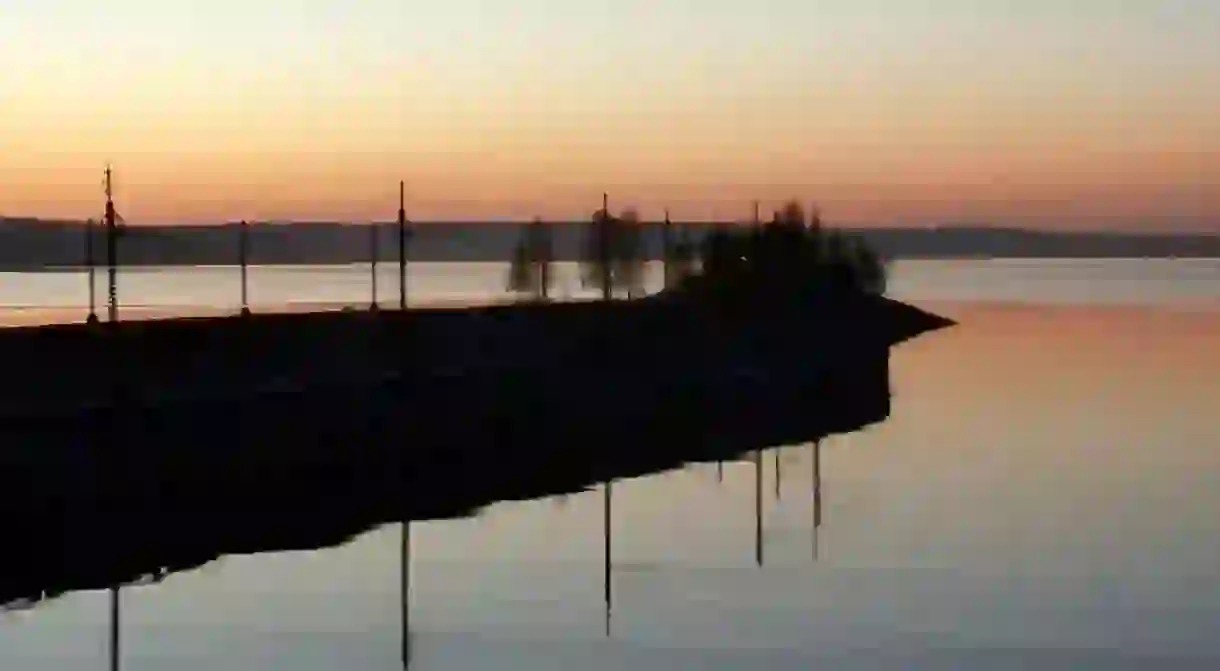A Comprehensive Neighbourhood Guide to Perm

Perm is one of the 15 cities in Russia with a population of over one million inhabitants. It is the last city on the European side of the Ural mountains and also a place hiding many unexpected cultural gems. When you do visit Perm, you should know where to go and which areas to stay away from.
Leninsky
University
Leninsky is a neighbourhood divided into two parts by the Kama river. Chances are it is also the neighbourhood that you will spend the most time in: the southern part of Leninsky is Perm’s most strict centre. In the northern part of the neighbourhood, you’ll find the campus of Perm Polytechnical University.
Derzhinsky
Train Station, University
Derzhinsky is a district directly neighbouring Leninsky. A vast part of its area is occupied by residential buildings, but it also houses establishments of municipal importance: the Perm-2 train station, which, next to the airport, is the city’s most important communication hub; and the campus of Perm State University, the most important higher education institution in the region.
Industrialny

This is the youngest of Perm’s neighbourhoods, established in 1972. It was separated out of Derzhnisky due to its rapidly growing population. The district’s most important establishment is Osentsovsky industrial hub. The city’s oil and gas processing is centred here and it is a very pragmatic, industrial-residential district. The city’s airport, Bolshoye Savino, is located right outside Industrialny.
Motovilikhinsky
First established as the city’s district in the 1930s, Motovilikhinsky was initially the sleeping quarters of the workers of the nearby factories. Now it is growing to be the most important residential district of Perm. It is the part of the city with the most single-family detached houses. Motovilikhinsky is a wonderful place for an afternoon stroll: the streets are wide and green, there are plenty of cafes to stop at for a coffee on the way. If you’re looking for a spectacle to watch, Motovilikhinsky also hosts the city’s planetarium and circus.
Perm Planetarium, Gagarina 27A, Perm, Permsky Krai, Russia, +7 342 260-41-29
Perm State Circus, Uralskaya 112, Perm, Permsky Krai, Russia,+7 342 260-48-87

Kirovsky

Kirovsky is the westernmost part of the city, and also one of the districts which are furthest away from the city centre. Its official name is Kirovsky, but the locals usually call it Zakamsk (as it’s entirely located on the northern bank of the Kama river, behind the river: “za-” means “behind”, “kamsk” comes from the Kama). It’s a highly industrial region which has a very bad reputation among the locals. It is a very interesting place, but also not the best destination for a relaxing evening stroll.
Ordzhonikidzevsky
Ordzhonikidzevsky is the northernmost part of the city. It stretches over both banks of the Kama river. The district is crucial for the energetic security of the city: it is where the Kama hydroelectric power plant is located. It is yet another pragmatic industrial-residential district and the type of settlement that most of provincial Russia is composed of.
Sverdlovsky

One of the southernmost parts of the city. It was established in 1936 and originally called Stalinsky but was soon renamed. Throughout the communist period, Sverdlovsky housed the headquarters of many establishments of regional importance, but with time it lost a lot of its prestige. Sverdlovsky is an another example of the industrial-residential fabric of which most of Russia is woven.













